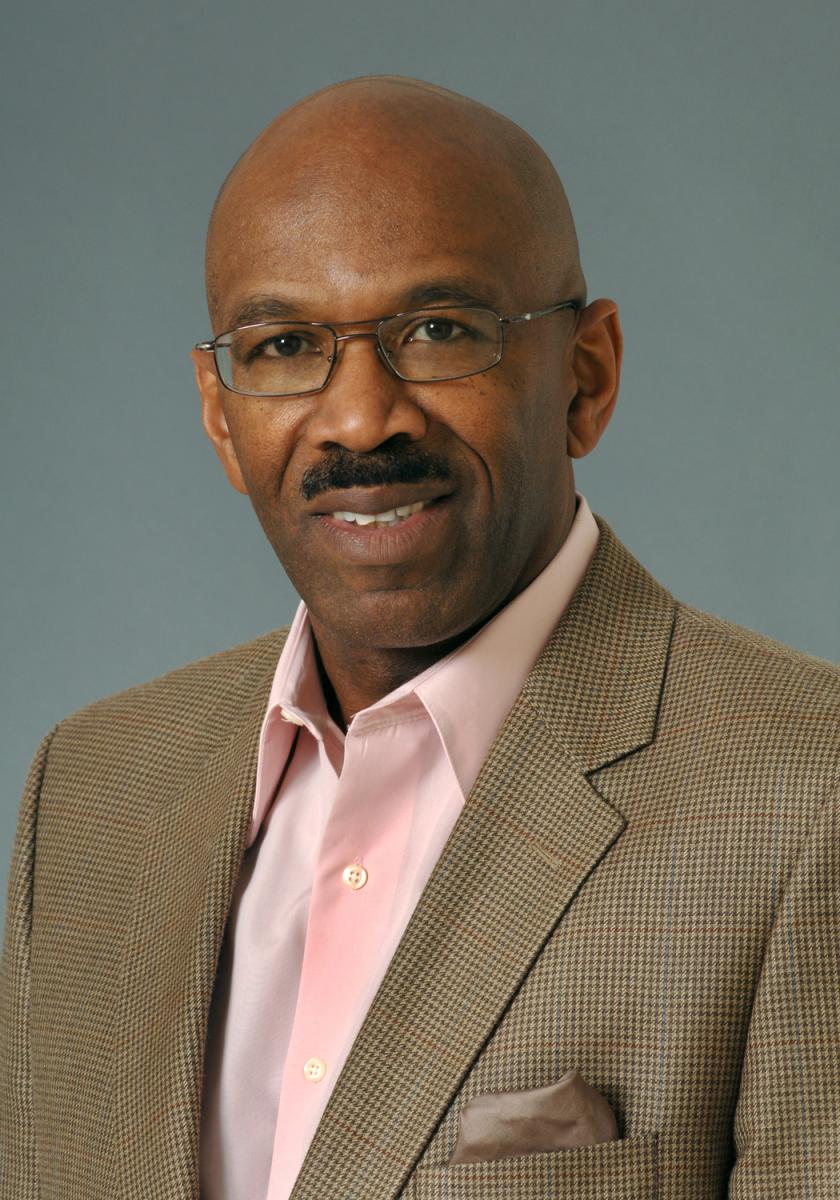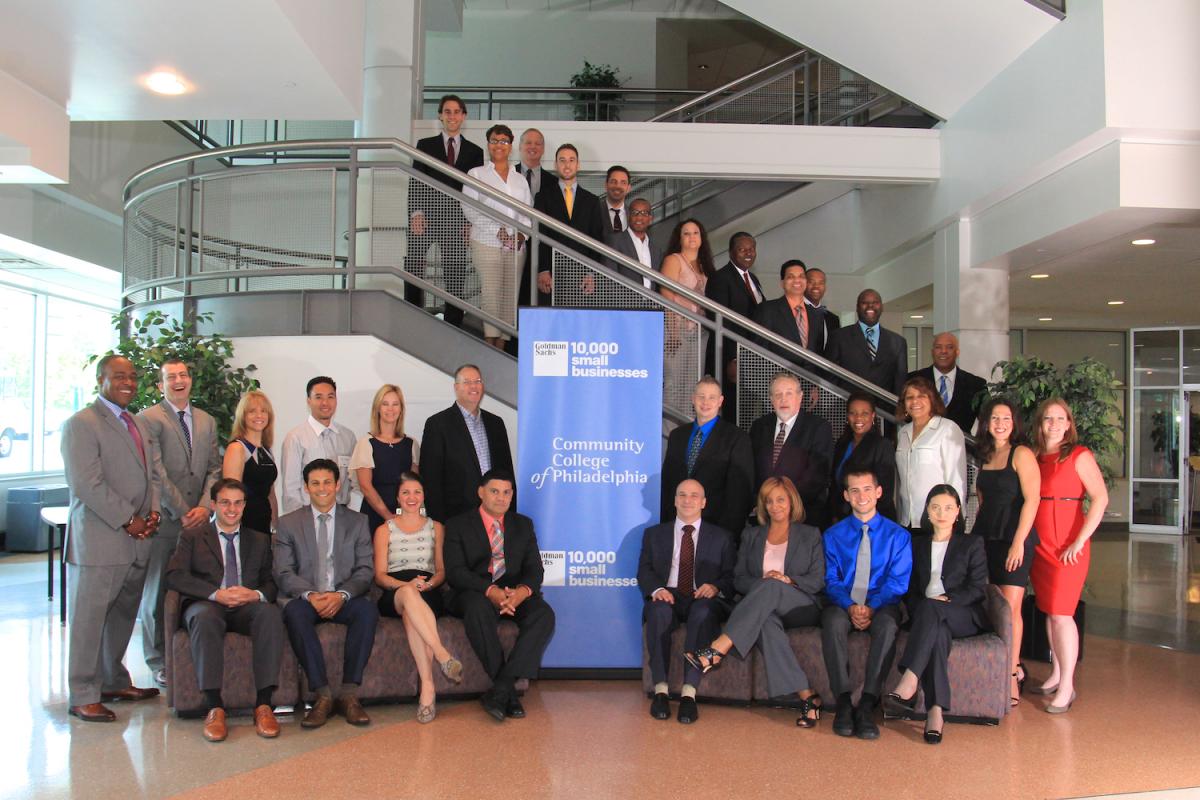Philadelphia Still Torn 30 Years After Deadly MOVE/Philadelphia Police Confrontations
During the Fox Rothschild Center for Law and Society’s 16th Annual Law and Society Week (Feb. 23-27) at Community College of Philadelphia, panelists took on a topic that has haunted the city for 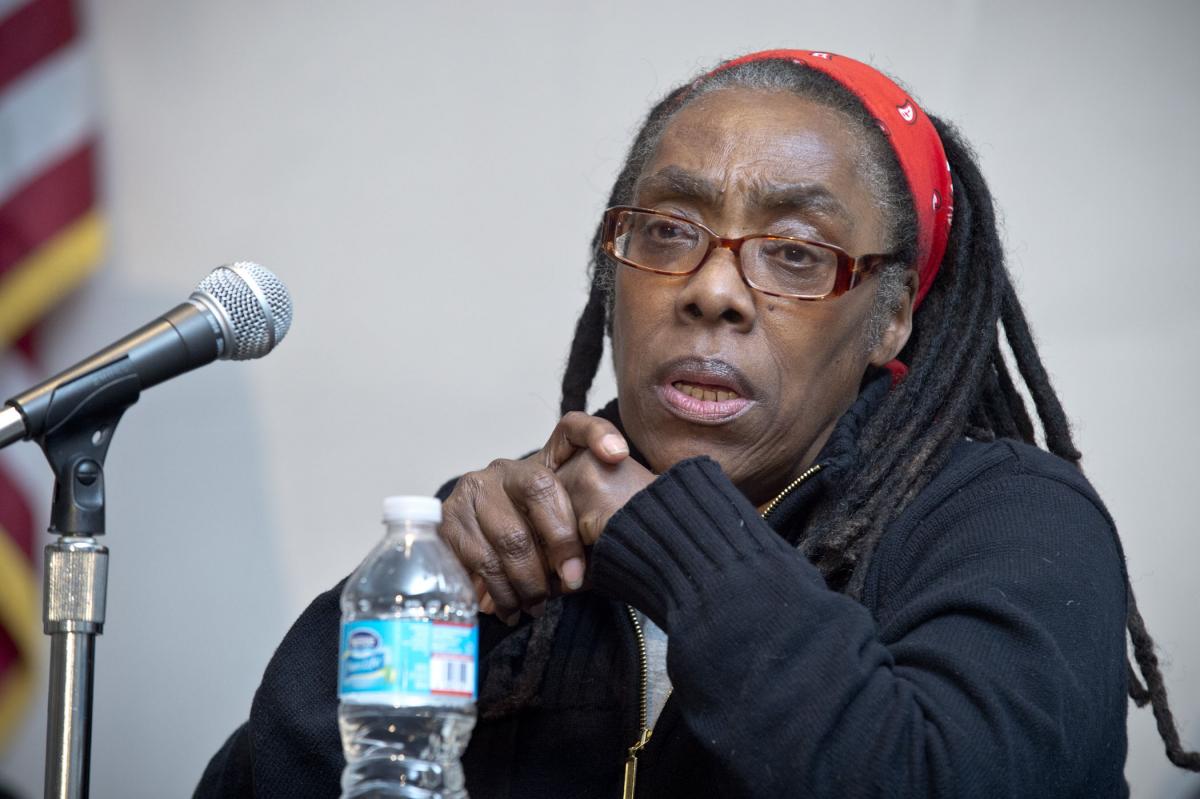 decades: What were the lessons learned—and the lessons yet to be learned—from the deadly MOVE bombing on May 13, 1985?
decades: What were the lessons learned—and the lessons yet to be learned—from the deadly MOVE bombing on May 13, 1985?
The goal was to foster a better understanding of the aftermath of the two clashes between the MOVE Organization and the Philadelphia Police Department (PPD) in both 1978 and 1985, and explore the lingering effects it has had on America’s fifth largest city.
“Knowing our history, including our controversial, messy history, is the duty of every citizen,” said Kathleen M. Smith, J.D., Fox Rothschild Center director. “By looking at MOVE, the confrontations and the history, we do come away with a deeper understanding of our society and ourselves. This is not an easy topic, but it's a critically important one and one which Community College of Philadelphia is uniquely positioned to take on.”
This year marks the 30th anniversary of the confrontation. In 1985, MOVE and the police made headlines after PPD authorities dropped an explosive device onto the roof of MOVE’s home in an attempt to end an armed standoff. The explosion and ensuing fire killed 11 people (five children, six adults) and destroyed more than 60 homes on the 6200 block of Osage Avenue in West Philadelphia.
Hundreds of people attended the College’s MOVE-related panels throughout the week, including Ramona Africa, MOVE’s minister of information and the only living survivor of the 1985 bombing.
The most spirited discussion unfolded during a Feb. 25 panel featuring Africa, Let It Burn authors Randi and Michael Boyette, and Jason Osder, filmmaker of “Let the Fire Burn.” It was moderated by Temple University Journalism Professor Linn Washington, who covered both the 1978 and 1985 events for media outlets worldwide.
Africa described the MOVE Organization, which still exists and today has a website, as a “revolutionary organization.” She took exception with those who have labeled the group, over the years, as violent and cult-like.
Africa said the fault for the 1985 confrontation lies squarely with the Philadelphia Police Department and City of Philadelphia officials who sought to eliminate the entire MOVE Organization.
“This was an attempt, a plan, to kill,” Africa said. “Not to arrest, but to kill. You don’t need to go past the fact that a bomb was dropped on our home, a bomb that ignited a fire…When we realized that our house was on fire, we attempted to get ourselves, our children, and our animals
out of that blazing inferno. We were met with a barrage of police gunfire that forced us back into the house several times…They (the police) came out there to Osage Avenue with a plan to kill, not to arrest.”
No representatives of former Philadelphia Mayor Wilson Goode or the Philadelphia Police Department were in attendance at this week’s sessions. However, Goode historically took exception to MOVE’s characterization of the actions. He was adamant the city had no other choice. “As Mayor of this city I accept full and total responsibility,'' Goode said on the evening of May 13, 1985. ‘‘There was no way to avoid it. No way to extract ourselves from that situation except by armed confrontation.”
Panelist Randi Boyette noted that clashes between citizens and police still exist today, and have escalated with the recent killings of unarmed African-American men by police in Ferguson, MO, and Staten Island, N.Y. Some participants, and audience members, wondered how the lessons of MOVE could inform today’s police-community debate.
The MOVE discussion was eye-opening for many of the College’s students in the audience, including those who had not been born when the group’s clashes with police took place. “I think many of the students are touched because Philadelphia is our home and the fact that something as awful as that happened in our city is a tragedy,” said Fiona O’Neill, a Culture Science & Technology major. “I hope that we’ve learned that violence doesn’t result in anything good and that fighting with each other isn’t a way to solve problems…I think that what we have learned is that people need to be more accepting of one another. We are all entitled to our rights and beliefs.”
The MOVE Organization is a Philadelphia-based, Black liberation group founded in 1972 by the late John Africa. In 1978, Philadelphia police officers had their first clash with MOVE when police raided the group’s Powelton Village home, resulting in the imprisonment of nine MOVE members and the death of police officer James Ramp. None of the nine was identified as the person who fatally shot Ramp.
Eight MOVE members remain in jail today as a result of the 1978 incident. One of the so-called MOVE Nine, Phil Africa, died in a Pennsylvania prison in January 2015.
On another panel featuring journalists who had covered MOVE as the tragedy unfolded, panelists said the local media have made efforts over the past decades to probe deeper into this conflict and to provide fresh insights into how things went so wrong.
Members of the media panel said they had heard complaints from Osage Avenue neighbors against MOVE’s behavior and lifestyle for months leading up to the 1985 incident. None of them felt that they had been used by government officials, as Ms. Africa charged this week, to create a negative public impression of the MOVE Organization.
Bill Marimow, executive editor of The Philadelphia Inquirer, said the Inquirer probably should have paid more attention to what was happening to the Osage Avenue neighborhood in the years leading up to the bombing.
“The fact that we didn’t pay attention to that consistently, in my opinion, probably created less pressure on first the (William) Green (mayoral) administration and then the Goode administration to address the issues prior to the tragic events of May 13, 1985,” he said.
“In my opinion, it (the 1985 MOVE bombing) was the most significant urban tragedy and public policy travesty in my lifetime and in the last century,” said Marimow, who was an Inquirer reporter on that date. “It was a total disaster, in my opinion, in terms of public officials’ responsibility to protect citizens and their well-being.”
Chivonne Green, an Architecture and Interior Design student at the College, said she attended the various Law and Society Week events to learn more about the 1985 MOVE confrontation.
She was only four-years old in 1985, but said the discussion on the 1978 and 1985 MOVE confrontations provided some greater insights into the issues of today.
“I hope what students got the most out of this was an understanding of different perspectives,” she said. “Not just looking at it from the MOVE perspective, not just looking at it from the public figures’ point-of-view, but looking at it from all sides and being able to come up with a rational decision about what could have been done differently and what could happen moving forward.”
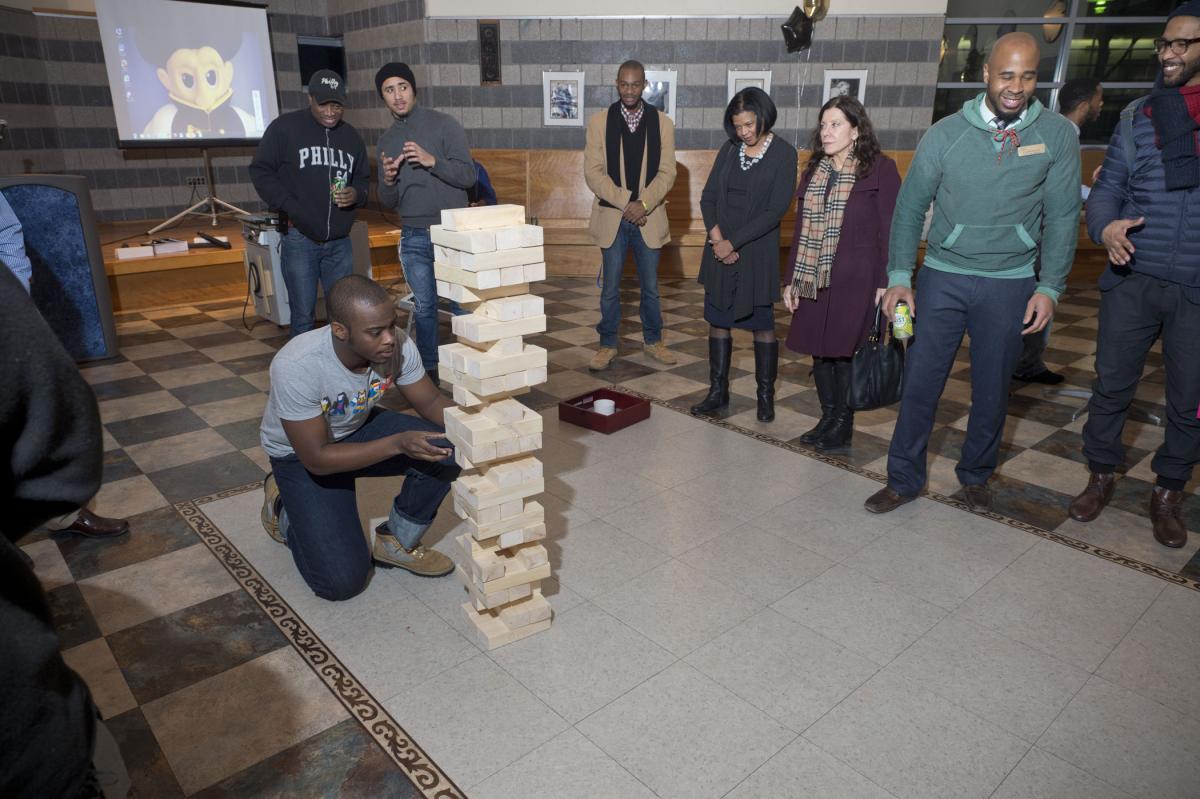
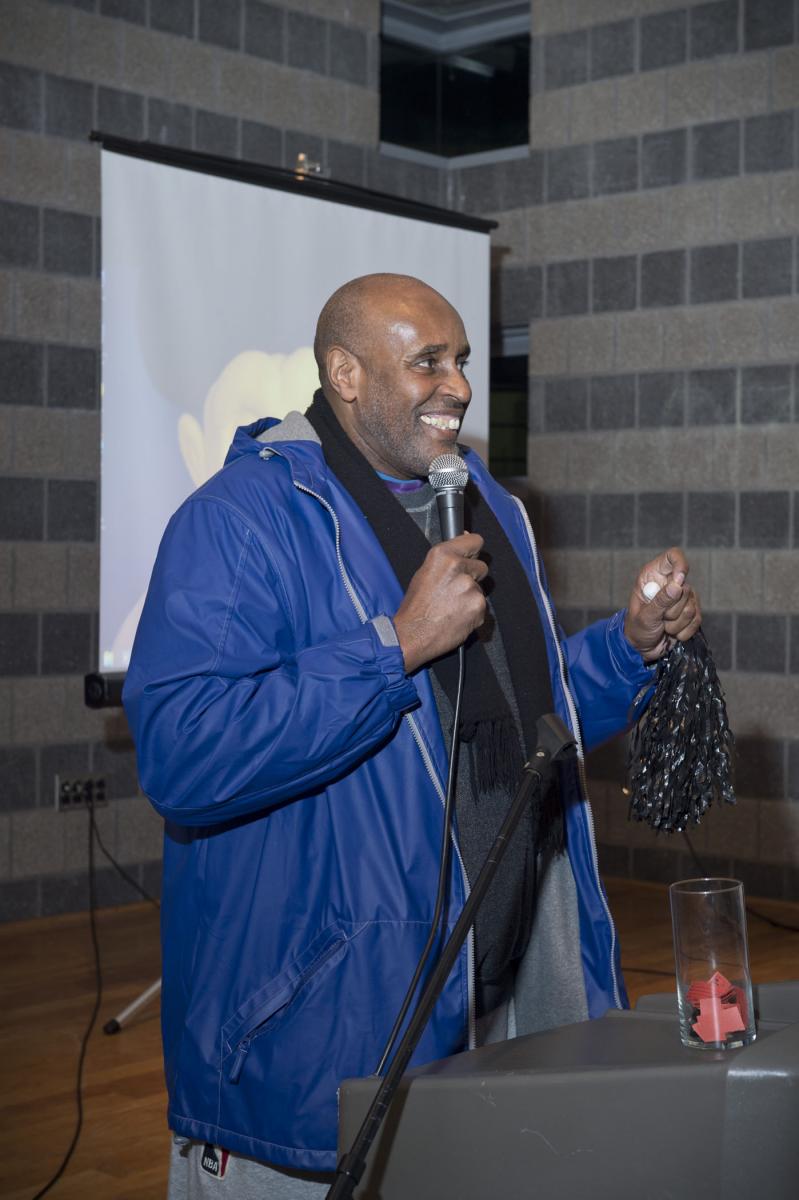 Ollie Johnson, a former member of the Philadelphia Sixers NBA basketball team, was a special guest that night. Johnson played for the Colonials as a freshman before transferring to Temple University, where he was a standout with the Owls.
Ollie Johnson, a former member of the Philadelphia Sixers NBA basketball team, was a special guest that night. Johnson played for the Colonials as a freshman before transferring to Temple University, where he was a standout with the Owls.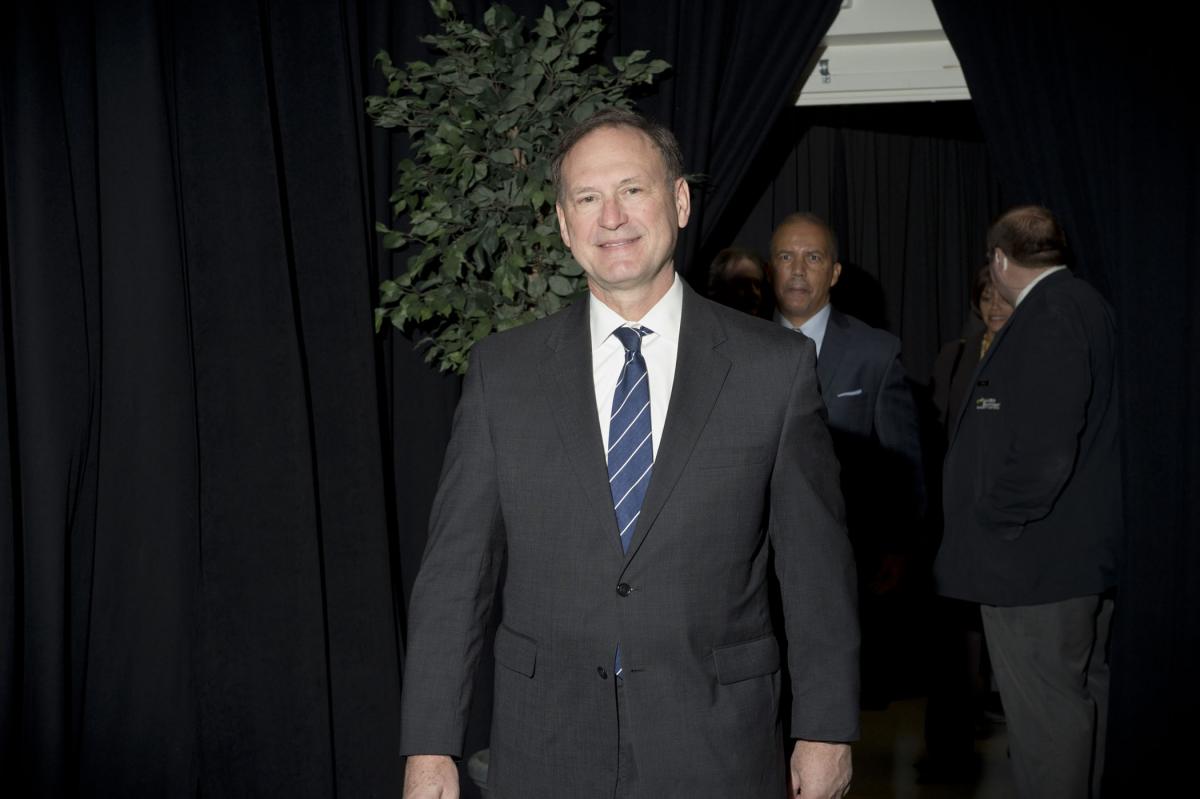

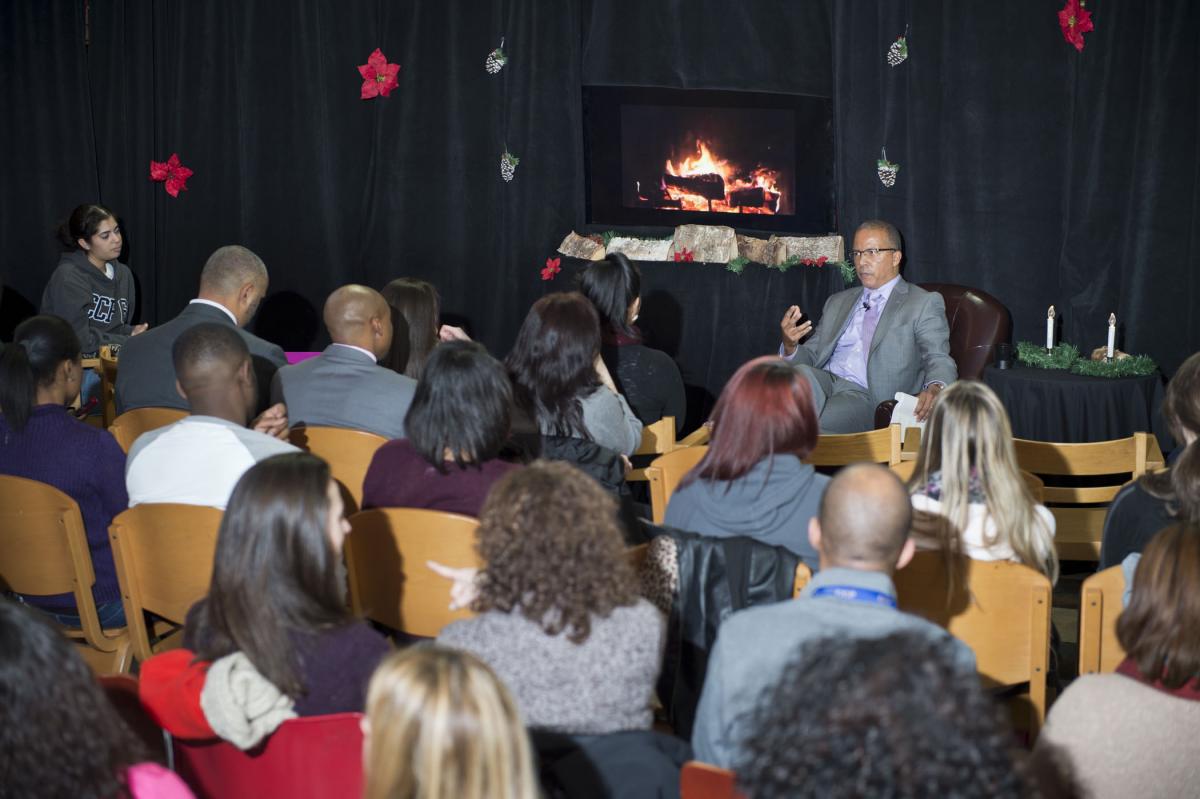


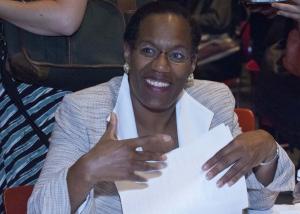 Students, faculty and staff members gathered for an Ebola information session October 28 on the Main Campus, which was designed to foster a better understanding of how the virus works and to share safety recommendations from leading health organizations.
Students, faculty and staff members gathered for an Ebola information session October 28 on the Main Campus, which was designed to foster a better understanding of how the virus works and to share safety recommendations from leading health organizations.